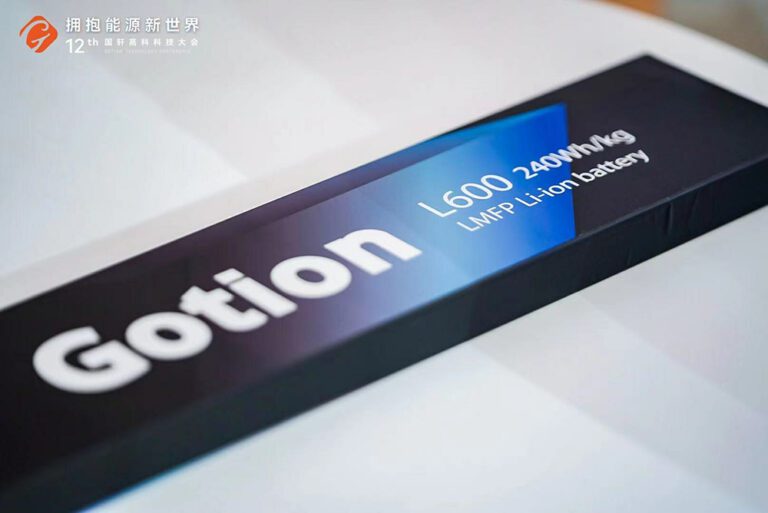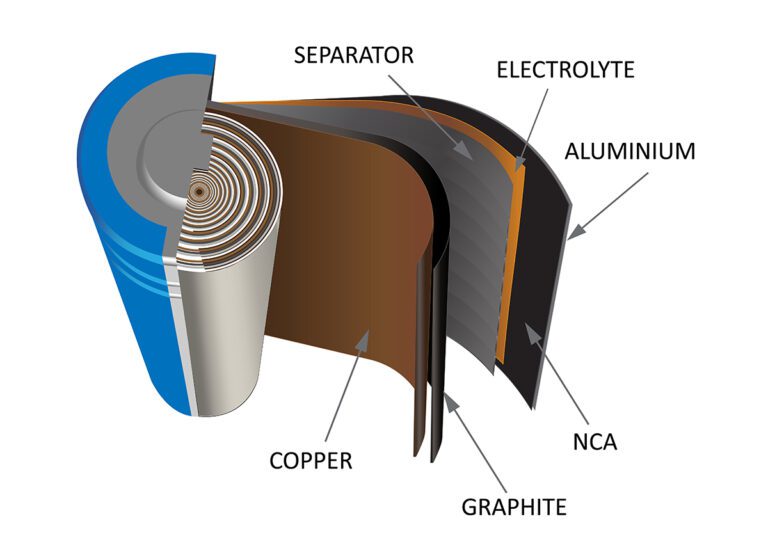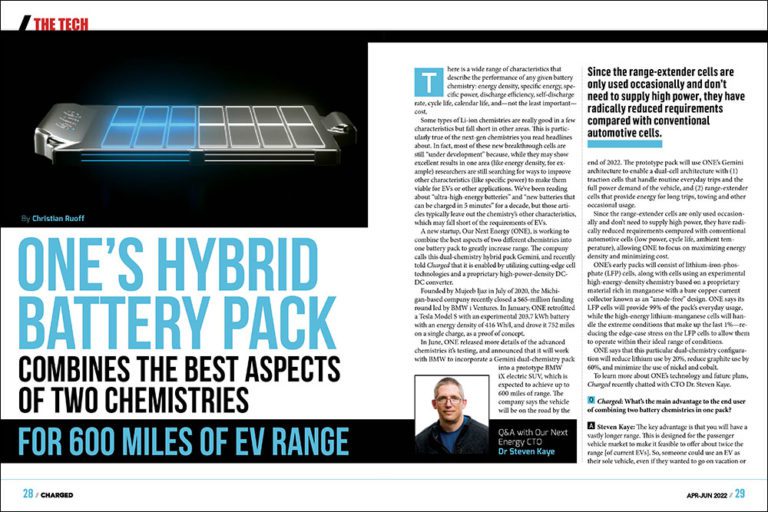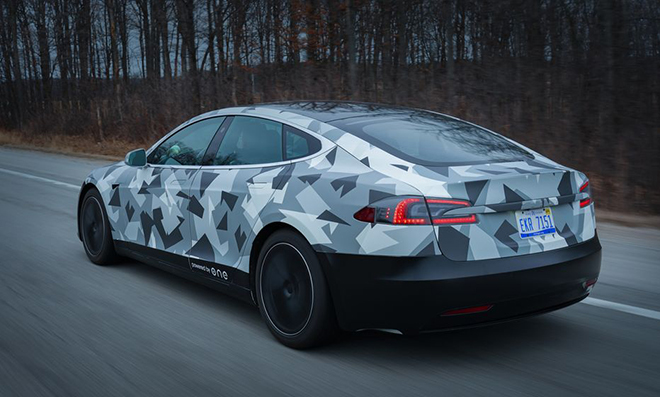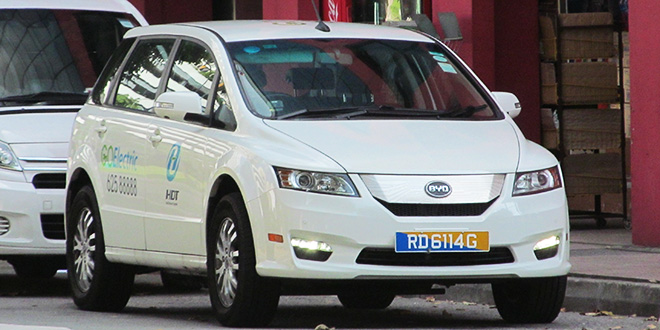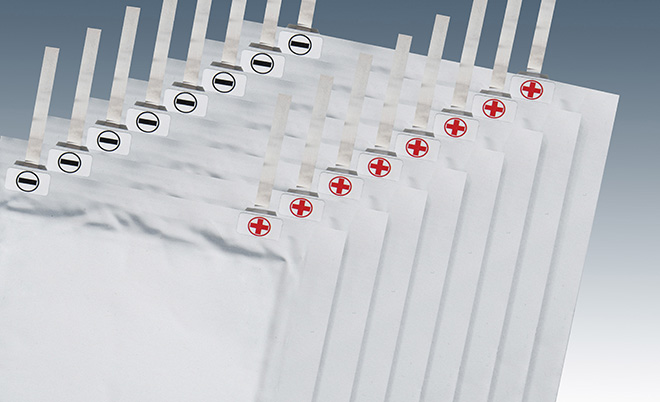The DOE’s Loan Programs Office has announced a conditional commitment for an $850-million loan to finance construction of KOREPlex, a new production facility that US battery manufacturer KORE Power plans to build in Buckeye, Arizona. Final issue of the loan is several steps away, and is dependent on certain milestones being reached. The plant, part… Read more »
Search Results Found For: "Lithium Iron Phosphate"
Gotion High-Tech’s Astroinno battery claims 1,000 km range without NCM
Chinese battery manufacturer Gotion High-Tech has introduced its lithium manganese iron phosphate (LMFP) based Astroinno L600 battery cell and pack, which it plans to start mass producing in 2024. Manganese-doped LMFP Astroinno batteries offer a 1,000 km range, over 1,800 cycles of 18-minute fast charging and 190 Wh/kg specific energy, according to the company. Gotion… Read more »
A closer look at graphite—its forms, functions and future in EV batteries
Q&A with Graphex CEO John DeMaio Reading the EV press, you might assume that lithium, cobalt and nickel are the stars of the battery show—they get a lot of coverage, as pundits debate the relative merits of NMC and LFP cathode chemistries and agonize over looming shortages. Meanwhile, over in the anode, there’s an unsung… Read more »
The EV raw materials crunch: How bad, how long, how to solve it?
This article originally appeared in Issue 60: April-June 2022 Subscribe now Every new technology must overcome a series of temporary constraints on its way to widespread adoption. Since modern EVs appeared a decade ago, they’ve motored past many of these bottlenecks, (or hurdles, or roadblocks—pick your preferred metaphor). Range has increased, access to charging infrastructure has expanded,… Read more »
ONE’s hybrid battery pack combines the best aspects of two chemistries to deliver 600 miles of EV range
Q&A with ONE CTO Dr. Steven Kaye. There is a wide range of characteristics that describe the performance of any given battery chemistry: energy density, specific energy, specific power, discharge efficiency, self-discharge rate, cycle life, calendar life, and—not the least important—cost. Some types of Li-ion chemistries are really good in a few characteristics but fall… Read more »
Rivian working on 800-volt architecture, bidirectional charging, in-house drive units and battery cells
EV startup Rivian’s Q4 2021 Shareholder Letter is reminiscent of the ones we used to see from a certain other Californian EV startup in its idealistic younger days—full of forward-looking technical innovations. Rivian appears to embracing several current trends on the EV scene—going bidirectional and moving towards 800 volts, LFP cells and more in-house production… Read more »
Our Next Energy tests 750-mile battery pack in a Tesla Model S
A two-year-old Michigan startup, Our Next Energy (ONE), has built a custom battery pack that recently propelled a modified Tesla Model S for 752 miles. John Voelcker, writing in Car and Driver, reports that ONE retrofitted the car with a pack that stores twice the energy of Tesla’s original, and fits in exactly the same… Read more »
Paraclete Energy says its low-cost silicon nanoparticles can at least double your current anode capacity
Silicon has a theoretical charge capacity ten times higher than typical graphite. That is why a mind-blowing number of researchers are working towards replacing more and more of the graphite used in today’s lithium-ion battery anodes with silicon. In the last issue of Charged, we discussed Tesla’s announcement that it had begun to use small… Read more »
BYD sells 50 e6 EVs to San Diego ride-sharing fleet
San Diego-based ride-sharing service Opoli has agreed to buy 50 e6 EVs from China’s BYD Motors. The e6 electric crossover will join Opoli’s natural gas airport shuttles later this summer. Opoli, which launched its service in the San Diego area just a few weeks ago, is the first ride-share service permitted at the San Diego… Read more »
French chemical giant and utility join to create energy storage R&D lab
Arkema, a global chemical company, and SCE France, a subsidiary of Canadian electricity producer Hydro-Québec, plan to create a joint laboratory that will focus on developing a new generation of materials for the manufacture of lithium-ion batteries, in particular new electrolytes (solvents, lithium salts) and conduction agents (carbon nanotubes, conductive polymers). Arkema’s Kynar polyvinylidene fluoride… Read more »





